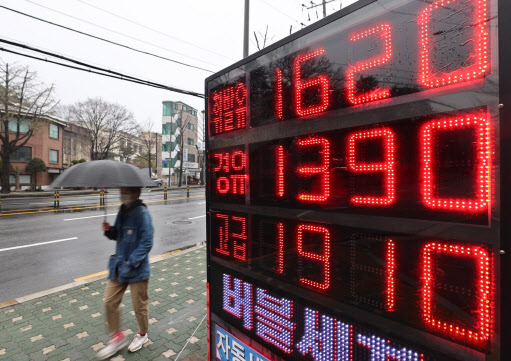|
According to Petronet, the Korea National Oil Corporation’s oil information site on the 4th, domestic oil consumption last year was 878.11 million barrels in the aftermath of the Corona 19 shock, a 5.8% decrease from a year ago. In particular, as travel demand declined due to movement restrictions, domestic aviation fuel consumption last year was 23.78 million barrels, down 44% from the previous year.
However, starting this year, oil consumption itself is showing a recovery trend. According to statistics for January-February, which has been compiled so far, in January it recorded 75.81 million barrels, and in February it recorded 7241 million barrels. Compared to the same month last year, consumption in January decreased by 6.3%, but consumption in February recovered to the same level as the previous year.
In particular, the consumption of jet fuel is still less than half of the previous year, but demand for other products such as gasoline and naphtha is close to the level before Corona 19. Due to the consumption recovery that has continued since the end of last year, there are also observations that four domestic refineries, such as SK Innovation, S-Oil, GS Caltex, and Hyundai Oilbank, will turn to the black at once in the first quarter. The oil refining industry is predicting that oil consumption will recover this year, and earnings will improve this year as refining margins, rising oil prices, and supply shortages due to natural disasters are combined.
Meanwhile, long-term oil consumption is expected to decrease as the government is actively pursuing eco-friendly policies aimed at carbon neutrality in 2050. According to the Korea Institute for Energy Economics, oil demand is expected to decline by 0.4% per year after 2025 due to the conversion of hydrogen and electric vehicles, reaching 868 million barrels in 2040.
Last year, oil consumption decreased due to the unprecedented factor of Corona 19, but it means that such consumption will become a general situation in the future. Accordingly, oil refineries are also reducing the proportion of traditional petroleum businesses to reduce carbon emissions. Instead, they are actively investing in new businesses such as hydrogen, fuel cells, venture investment, and life platforms to seek new growth opportunities.

